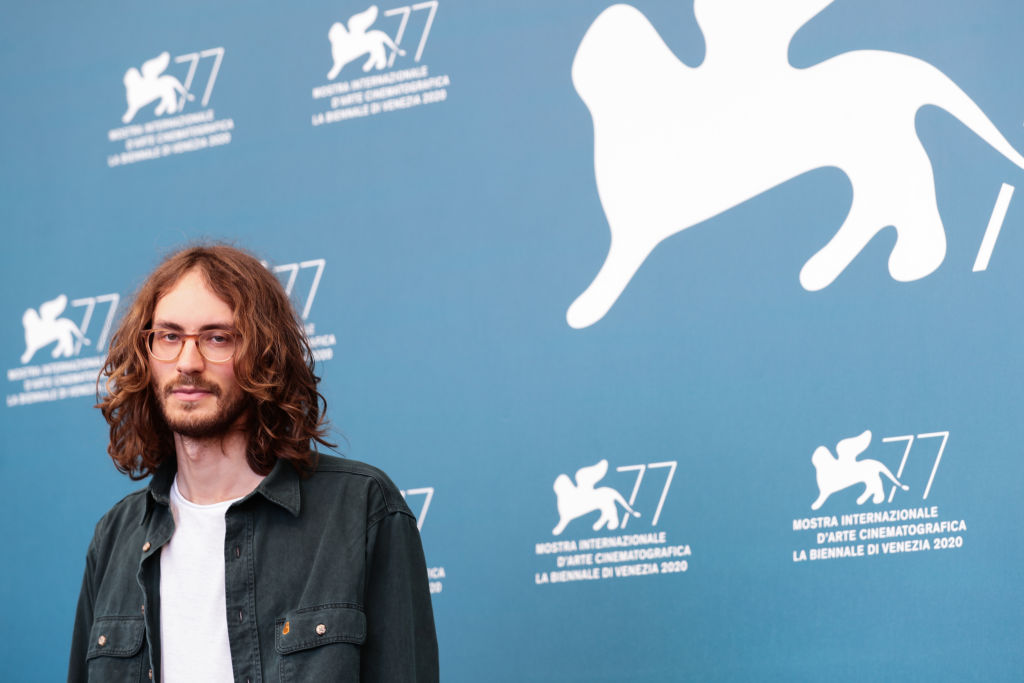
- Festivals
Venice Report: Director Nathan Grossman on “I Am Greta”
He is a young Swedish writer, cinematographer, and documentarian who had a few projects in the pipeline when he heard about a 15-year old schoolgirl who was staging a lone protest in Stockholm. Intrigued, he took his gear and his cameraman and went down to see what it was all about. The little story turned into a whirlwind year filming the rise of and the voice of climate crisis conscience and then became I Am Greta. We spoke with Grossman at the Venice festival where his film premiered.
It really looked like you had great access to Greta Thunberg. How did you get so close?
I followed Greta for over a year. I went with her on many of her trips, on these long train rides and electric cars. In the beginning, when I started to film her, she was very shy, and the content was not very strong. But as we spent more and more time together and I as I learned more about what topics she’s interested in – and when I started to film everything on my own – we built this connection that I hope is seen in the film.
How did you meet her?
I got the tip from a friend who knew the family that she was doing a small protest outside the Swedish Parliament. We asked if we could put a microphone on her. Quickly people stopped and some were “why are you not going to school?” and others said: “you’re doing a great job”. After a few days we thought, this is getting interesting.
It’s very touching to see her in the unguarded moments when she sways to the music to de-stress. What was that like?
Documentary filmmaking is this special thing as you get invited into people’s lives. I’ve seen her do some grooves and some moving, and I knew she was interested in music, but I had no idea that was coming. As a filmmaker, I try to have my camera with me all the time, by my legs or under the table, because you never knew when a situation pops up. I knew that that was a moment that was so special and releasing. I was so glad I got that because I could have never asked her to recreate it again.
How would you describe her?
As very frank. She speaks her mind, and she says what she thinks. She said in the Venice general press conference that she didn’t think I was professional because I worked with a very small crew. That’s very Greta-ish. She doesn’t care about social norms or politeness, she goes to exactly what she wants to say. When it comes to climate change that’s what’s needed.
Did you do research into Asperger’s to understand what she is going through?
I read up on climate change and I read up on autism, and I asked my editors and co-workers to do the same. It was important to help the viewer get into her world.
The voyage to New York on that small sailboat is kind of her breaking point. What happened on that boat and how long did the Atlantic crossing take?
It took about 15 days. You are thrown together in this small space. You can’t really read and you just try to focus not only on filming but on sleeping and eating.
Did anyone get seasick?
I was the one who got most tired and most seasick on that trip. Both Greta and her father handled it better.
What did she teach you, as a human being and in terms of the climate crisis and how you live your life?
She taught me to get passed all those nice formulations and get deeper into the subject matter, get as close to the core facts as possible. I hadn’t spent any time reading through the Paris Agreement or other reports. Very important reports about what’s going to happen to my future.
Are you a vegan?
I’m not a vegan totally, but I try to eat as little meat and dairy as possible and I took the train down here. Greta always says it’s not only an individual thing and it’s not only a structural thing. It’s the combination of both, structural change and that we as individuals do as much as we can to make a difference.
Her mother appears only in a small scene in the film.
The movie is kind of a road movie, and the father is the one who goes with her. I was very interested in their relationship which is very typical for a teenage daughter and father relationship. Where you don’t want your father around all the time, but you need him for advice, and you also can have fun with him. The viewer can relate.
Is she happy with the film?
She says so. She says she recognizes herself in the portrayal which was very important to me. She would not have said that if she didn’t mean it, she is so frank with her opinions.
What surprised you most about her?
The laughter and that funny side of her, that took me a long time filming until I saw it, but it is something extraordinary and very bubbly. We haven’t seen that with her in the media which is very stoic.

